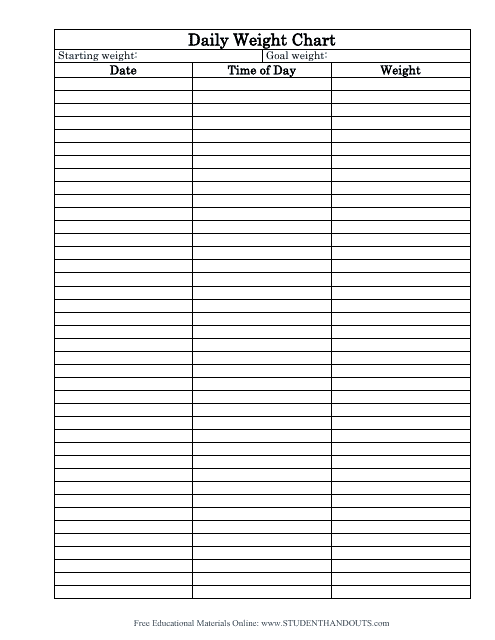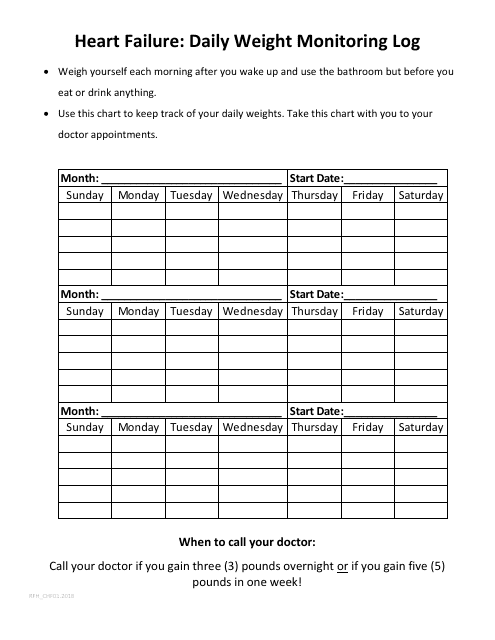Free Daily Weight Chart Templates
Daily Weight Chart: What Is It?
A Daily Weight Chart refers to a tool used to record the change in weight and see whether an individual is able to follow a diet they have selected for themselves or how they react to treatment due to a medical condition.
Alternate Name:
- Daily Weight Loss Chart.
It is recommended to regularly weigh yourself when you manage your weight for health purposes or embark on a fitness journey - keep track of your progress or, in some cases, negative consequences for your body in order to stay motivated or to share crucial information with your doctor.
For a full list of Daily Weight Chart templates please check out our library below.
Usually, this document looks like a simple table - the columns specify the date, the time you weighed yourself (some people choose to do it twice - in the morning and in the evening), and the numbers you see on the scale. The chart can be more elaborate - in case you want to remind yourself of your starting weight and the ultimate goal weight you are trying to reach, write down the numbers on top of the spreadsheet.
Expand the table by recording your meals - this way, you can combine the functions of a Daily Weight Chart and a food diary keeping all crucial details related to your weight loss in one place. If your target is to reach a healthy body mass index, it might be necessary to calculate the number and indicate it next to the weight as it goes down. You can also add remarks related to the medication you took on a particular day or physical sensations you have experienced after eating food you are not used to or the increased intensity of your workout routine.
Haven't found the template you're looking for? Take a look at the related templates below:
Documents:
3
This document is a template for tracking daily weight in a spreadsheet. It allows you to record and monitor your weight over time.
This document is used for tracking and monitoring daily weight changes. It allows you to record your weight on a regular basis for health and fitness purposes.
This document is a template for tracking daily weight in individuals with heart failure. It helps monitor changes in weight, which can be an important indicator of fluid retention and heart health.


